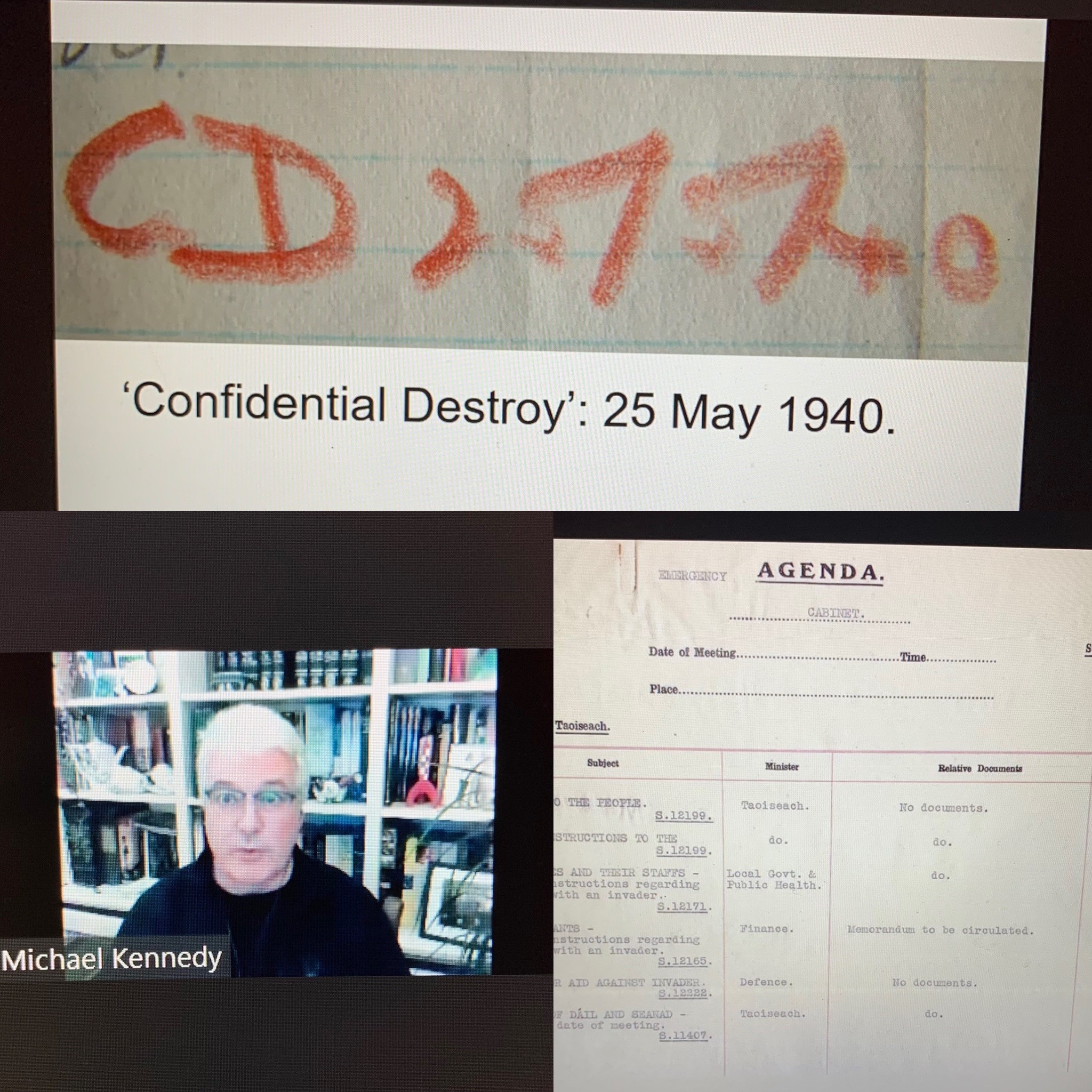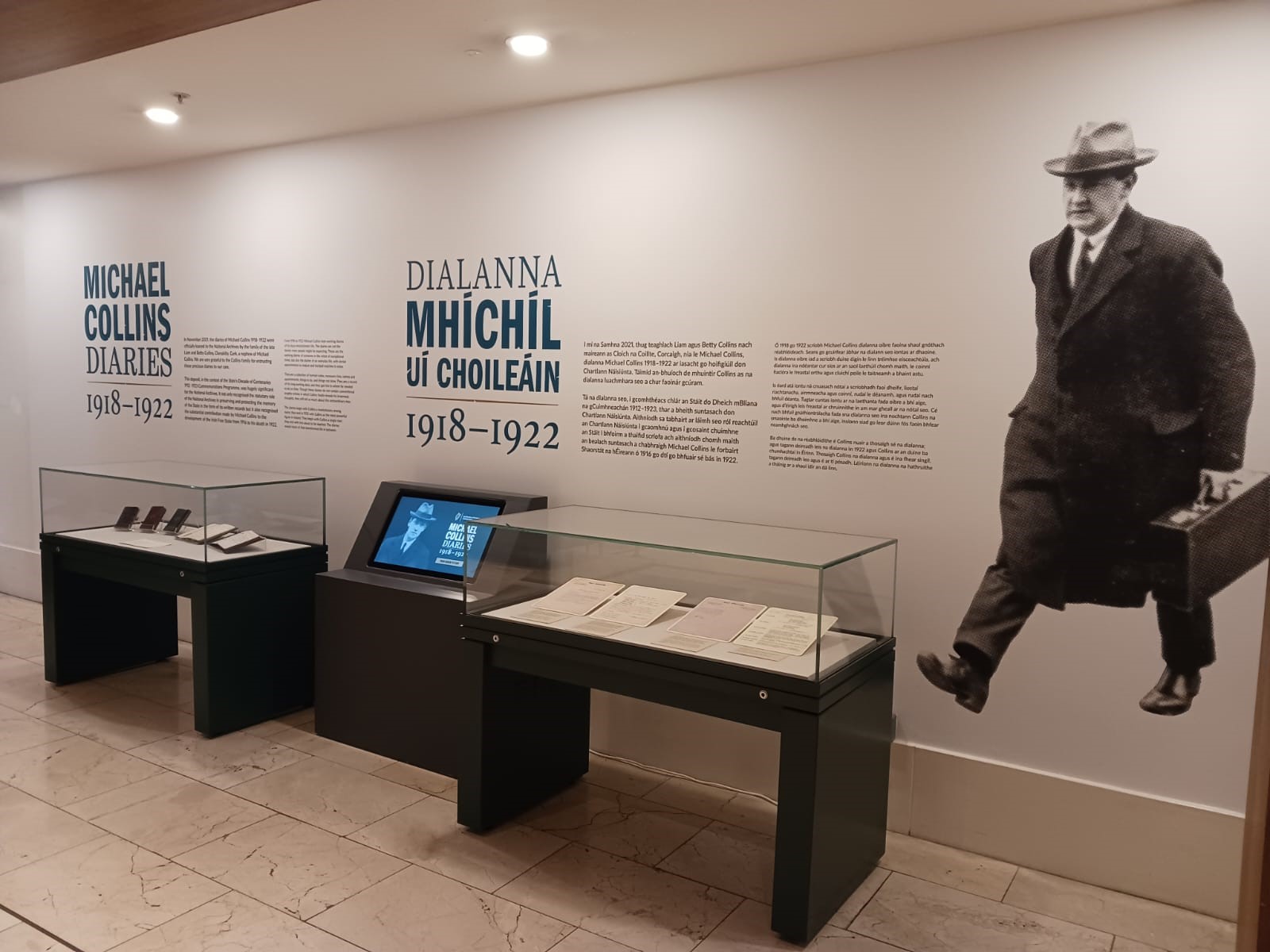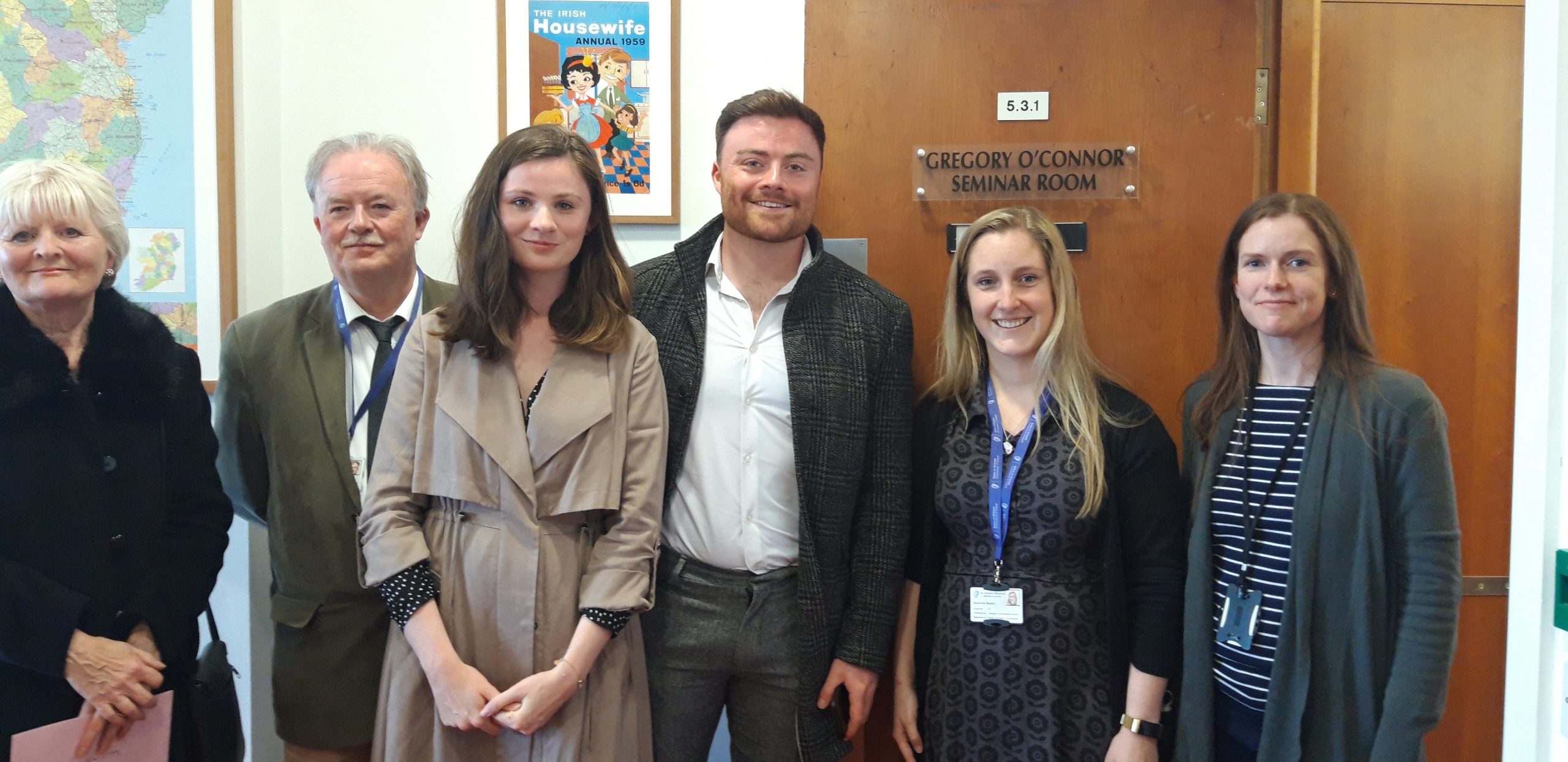Behind the Scenes
Behind the Scenes: Talk – ‘The destruction and preservation of the records of the Department of External Affairs during the Second World War’

The National Archives public events programme for 2021 began with a talk on February 26th by Dr. Michael Kennedy, the Executive Editor of the Royal Irish Academy’s Documents on Irish Foreign Policy (DIFP), titled: ‘”The coming generations would reproach us for not taking all the available precautions’’: the destruction and preservation of the records of the Department of External Affairs during the Second World War’. The talk focused on one of the enduring legends in the history of Irish foreign policy in that a large amount of important documents of the Department of External Affairs (now Dept. of Foreign Affairs) were purposely destroyed in May 1940.
Dr. Kennedy explained that it was in the context of World War Two and the succession of events from the Munich crisis in September 1938, the declaration of war in 1939 and the invasion scares of 1940 which lead to such action. It may be easy now to think lightly of such a fear but it was seriously anticipated that Ireland could be invaded by an Axis or Allied power then at war. It was considered likely that if the German’s invaded Ireland they would launch bombing raids on Dublin and parachute in, while also coming in by sea via the Cork coast. The Department of Finance was therefore tasked with the emergency planning to protect state treasures and official archives that would be considered a national disaster or impede the functions of the government if lost.
It was decided to make duplicates of records by using a Kodak Recordak microfilming machine with filming being undertaken at Beggar’s Bush Barracks. The emotive statement that ‘’the coming generations would reproach us for not taking all the available precautions’’ was made by the Kodak representative Daniel O’Connell to Minister Seán McEntee who proceeded to take the protection of Irish government papers seriously.
Secure locations for storage outside of Dublin were sought and Coláiste Muire Preparatory College in Tourmakeady, County Mayo was identified as one safe place to house archives, artefacts and artworks from the National collections. The school had 61 students and was run by nuns and it was considered that ‘the occupation of the building by the nuns would be an advantage and in the nature of an added protection’. Collections were stored there from 1942 and removed in June 1945.
With regards to the destruction of the Department of External Affairs files Dr. Kennedy has undertaken forensic work to discover what was destroyed and when in the ‘trail of debris’ that such actions leave. Gladly Dr. Kennedy identified that the destruction was far less than what was anticipated, it had been suspected that 50% of the records generated between 1928 and 1941 had been destroyed but that has proved to be a huge over-estimation. Although no list of what was destroyed was kept, by using the registry system Dr. Kennedy has been able to catalogue what was incinerated under the instruction of ‘if in doubt, destroy’. Although the volume of material destroyed is much less than feared the fact that the files were of a high level nature, deemed dangerous if they were to fall into German hands, then the loss is significant. The policy was not to preserve or copy records of a compromising nature but to ‘confidential destroy’ documents that showed relations with the British government, the mark of ‘CD’ followed by the date identifies material no longer extant. The systematic destruction, particularly of confidential reports, prove a real loss to the understanding of high level Irish foreign policy.
Dr. Kennedy’s talk highlighted the haphazard nature of state paper preservation and also that the practices and procedures for record preservation was particularly varied in the External Affairs consulates. It was not until the war made the consideration of preserving state records necessary that archives received attention since the foundation of the state.
Dr. Kennedy’s talk was not only interesting but also very entertaining, his familiarity with the department and the personalities involved really brought the period to life. It was remarked that there may indeed have been some documents destroyed that could potentially embarrass the department, particularly those generated by Charles Bewley, the pro-Nazi Minister to Germany (1933-1939). However, as Dr. Kennedy stated, record keeping, regardless of the difficult history it may contain, is part of a democracy and these records would not be shied away from.
More information on what was destroyed by the Department of External Affairs can be found in appendices of volumes 5-7 of Documents on Irish Foreign Policy: https://www.difp.ie/


